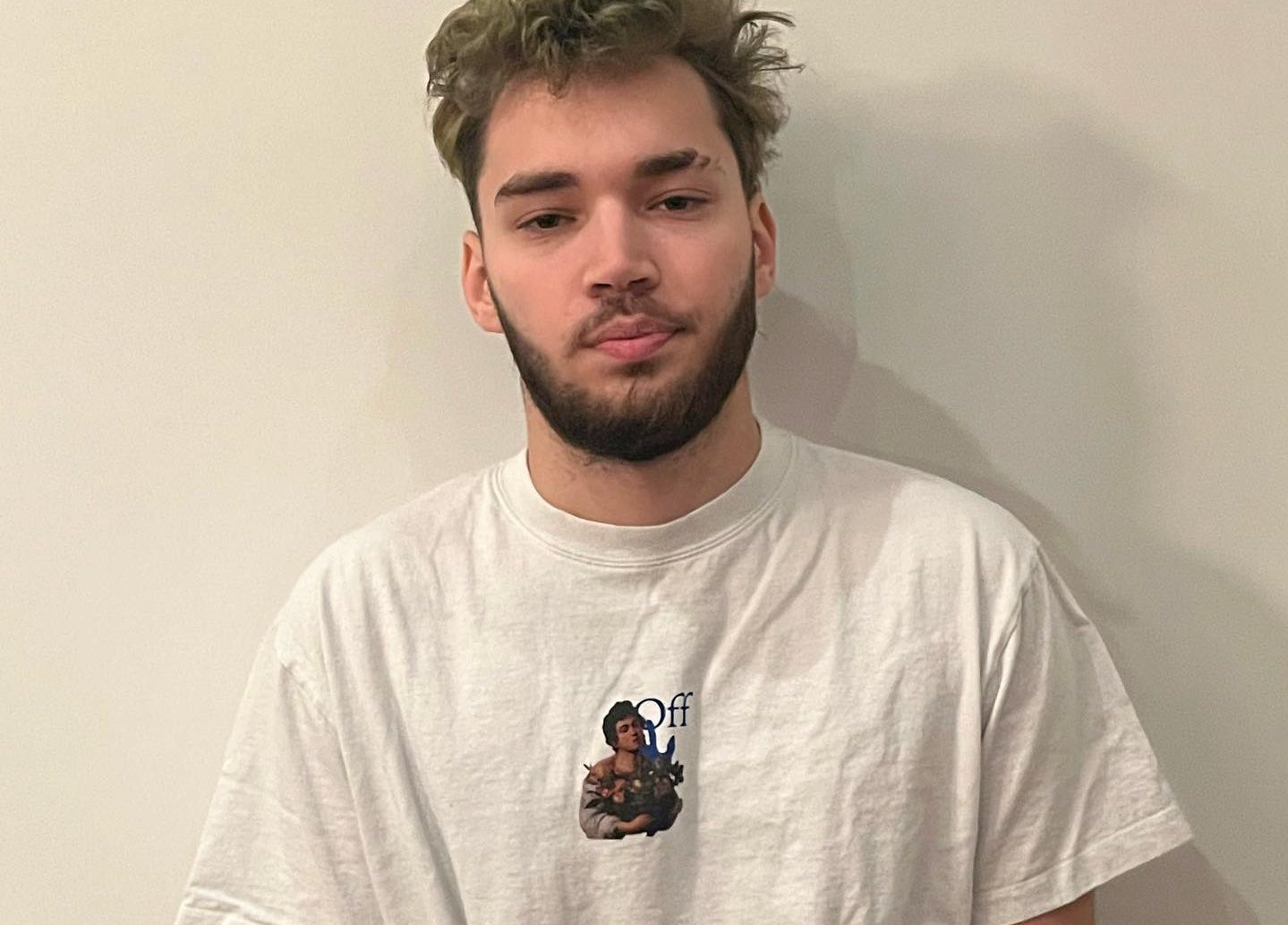Adin Ross - Unpacking Online Personalities And Public Perceptions
The digital landscape, you know, it's a place where individuals can build a significant following, creating content that resonates with countless viewers. This kind of influence, too it's almost, brings with it a unique set of challenges and public scrutiny. People who spend their time in the public eye, like online entertainers, often find themselves at the center of discussions, some of them quite intense, about their actions and the way they carry themselves.
These figures, actually, frequently enter into all sorts of arrangements and collaborations that shape their presence on the internet. From how they manage their creative work to the financial side of things, there are many layers to how these personalities operate. It's a space where deals are made, expectations are set, and the community watches every move, ready to offer their thoughts on what's happening.
When we look at someone like Adin Ross, it becomes pretty clear that his activities and the things said about him spark a lot of conversation. The things people say, the observations they make, and the agreements he's part of, you know, they all paint a picture of a person living life under a very public lens. This article will explore some of these observations, as shared by various voices, giving us a peek into the ongoing discussions around this particular internet figure.
Table of Contents
- The Public Gaze on Adin Ross
- Understanding Streamer Arrangements
- Power Dynamics in Online Collaborations
- Perceptions of Financial Awareness and Intellect
- Community Reactions and Online Standing
The Public Gaze on Adin Ross
Being a well-known personality on the internet often means being subjected to intense observation from the public. Every action, every statement, it seems, can be picked apart and discussed by many. This kind of exposure, frankly, brings with it a certain degree of vulnerability, as opinions and claims, whether positive or negative, can spread with incredible speed. For Adin Ross, this public observation appears to be a constant part of his experience, with people sharing strong views about his conduct and decisions.
What are the Accusations Surrounding Adin Ross?
Some of the statements made about Adin Ross are, to be honest, quite serious. There are claims, for example, that suggest he has been involved in actions that people see as disrespectful to certain artistic expressions. Specifically, one person mentioned, from the perspective of a black man, that it's time to bring forward accusations of racism against him, citing instances where he allegedly "defaced black art." This sort of accusation, you know, carries a significant weight, touching on cultural sensitivity and respect for creative works.
Beyond the idea of disrespecting art, other claims have been put forward that are equally troubling. There's talk, for instance, of "white washing," which in a general sense refers to the practice of taking something that originates from one culture and then altering it to make it more palatable or appealing to a dominant culture, sometimes erasing its original meaning or creators. This kind of allegation, pretty much, suggests a concern about how cultural elements are presented and whether their original integrity is maintained.
And then, rather surprisingly, a very personal and deeply sensitive accusation was mentioned: "incest." This particular claim, obviously, stands out as profoundly serious and, you know, it's almost, an unusual point to bring up in public discussions about an internet personality. The very mention of such a thing highlights the extreme nature of some of the public discourse surrounding Adin Ross, showing how far some discussions can go when opinions are shared freely online. The original text also mentions that on certain platforms, comments cannot be posted and votes cannot be cast, with options for sorting comments by "best," "top," "new," "controversial," "old," "q&a," and "lsfmirror," with some clips being "edited." This suggests a controlled environment for discussion, perhaps in response to the intensity of these very kinds of claims.
Understanding Streamer Arrangements
In the world of online content creation, especially for those who stream regularly, arrangements and deals are a common part of how things operate. These agreements, you see, often involve specific expectations for the content creator, including how much time they spend broadcasting. For many, these deals represent a way to secure a steady income while pursuing their passion for sharing content with an audience. It's a give-and-take, where financial support comes with a commitment to certain activities.
How Do Streaming Deals Like Adin Ross's Work?
One specific example of such an arrangement, as mentioned, involves Adin Ross and some of his close associates. It was apparently a deal where he agreed to pay his friends a considerable sum, specifically fifty thousand dollars each month. This generous financial commitment, however, came with a clear condition: they had to stream for a significant number of hours every month, specifically one hundred and forty hours, on the platform known as Kick. This kind of setup, you know, really illustrates how performance-based these arrangements can be, linking consistent content output directly to a monthly payment.
Among the people who entered into this agreement, one individual was named as "Cuffem." This shows that these deals are often personal, involving people who already have a connection, perhaps through friendship or shared interests. The details of the arrangement, like the specific hours and the monetary figure, give us a glimpse into the mechanics of how top-tier streamers might structure their operations and support their network of collaborators. It's a business model, essentially, that relies on a consistent stream of content to keep the audience engaged and the platform active.
The original text also points out that Adin Ross, in a similar vein, tried to get his group to stick to a particular threshold for streaming activity. He apparently stated that they needed to stream for at least one hundred hours each month. This suggests a pattern, where maintaining a certain level of engagement from his network is important to him. It's a way, you could say, of ensuring that the collective output remains high, which benefits everyone involved, especially the main figure like Adin Ross who is making the payments. These sorts of requirements, in a way, highlight the demanding nature of a full-time streaming career, where long hours are often the norm.
Power Dynamics in Online Collaborations
Collaborating with others in the online content world can be a delicate dance, especially when it comes to who sets the tone or who has more say. In any partnership, there's often a subtle, or sometimes not so subtle, interplay of influence. This can show up in many ways, from deciding what content gets made to how a shared broadcast is structured. It's about who is perceived as leading the interaction, and whose space the collaboration is happening within, naturally.
Does Adin Ross Control the Narrative?
One particular interaction mentioned in the source material really brings this idea of control into focus. It describes a situation where someone apparently asked Adin Ross to play an intro song for them. This seemingly small request, you know, was interpreted as a way to establish a particular dynamic. The person making the request, in this view, was trying to create a situation where Adin Ross was stepping into *their* environment, rather than the other way around. It's a subtle but interesting point about who holds the reins in a shared online space.
This observation, you see, highlights the thought that goes into managing public appearances and collaborations. If Adin Ross were to play an intro song requested by another person, it could be seen as him acknowledging that person's space or authority, even for just a moment. It suggests that, in some respects, there's a constant awareness of how interactions are perceived, and who is seen as the host or the guest. This kind of careful consideration, you know, can influence how an audience views the relationship between two online personalities.
The whole situation, essentially, revolves around the idea of setting the stage. When you invite someone onto your platform, or when you join theirs, there are unspoken rules about who dictates the flow. By asking Adin Ross to play a specific song, the person involved was, perhaps, trying to assert a bit of their own influence, making sure that the collaboration felt more like Adin Ross entering their world. This kind of strategic move, actually, can shift the perceived balance of power, even if it's just for a brief segment of content.
Perceptions of Financial Awareness and Intellect
Public figures, especially those who gain popularity through sharing their thoughts and lives online, are often judged not just on their entertainment value but also on their perceived knowledge about various topics. This includes things like general common sense, their grasp of economic realities, and their ability to engage in thoughtful discussion. When someone expresses a view that seems out of step with what many consider to be true, it can lead to a lot of discussion and, sometimes, even amusement among observers, apparently.
Is Adin Ross's View on Income Out of Step?
A notable point brought up about Adin Ross concerns his understanding of average earnings. It was mentioned that he believes the typical yearly income is well over one hundred thousand dollars. This particular belief, you know, caused some strong reactions, indicated by laughing emojis and skull symbols in the original text. For many people, this figure is considerably higher than what they experience or what official statistics suggest is the average income. This kind of statement can make people wonder about a public figure's connection to the financial realities faced by most individuals.
The observation about Adin Ross's financial perception led to further comments about his general capacity for reasoning. One person stated, rather bluntly, that someone like "Destiny could win a debate against this guy if his position was that the sky is green." This is, in a way, a very vivid expression of a perceived lack of critical thinking or an inability to hold one's ground in a discussion, even against an obviously false premise. It suggests that some observers feel he might be easily swayed or perhaps not as sharp in debates as others.
Another comment, actually, went even further, with someone expressing confidence that they could "mindfuck Adin Ross into believing" something untrue. This implies a belief that he might be quite impressionable or susceptible to manipulation, at least in the eyes of some people. These sorts of remarks, obviously, reflect a broader perception of his intellectual abilities and how easily he might be led to accept certain ideas. It highlights how the public forms opinions not just on what someone says, but also on how they seem to process information and engage with different viewpoints.
Community Reactions and Online Standing
The online community, you know, is a very vocal space where people are quick to share their feelings about public figures. These reactions can range from support to strong criticism, and they often shape how an individual is seen within the broader internet culture. For online personalities, managing these perceptions is a constant effort, as their standing can shift quickly depending on what's being said about them and how they respond.
The Online Talk About Adin Ross
When it comes to Adin Ross, there are definitely some strong sentiments floating around. One comment, for instance, drew a comparison between him and another well-known figure, Andrew Tate. The statement was that Andrew Tate was considered a "top g," a term often used to describe someone seen as powerful, respected, or highly capable, while Adin Ross was not. This kind of comparison, you see, positions Adin Ross in a less favorable light, suggesting he doesn't command the same level of respect or influence in certain circles.
The conversation around Adin Ross also includes some very blunt language, describing certain situations as "real greaseball shit" and involving "cloutchasers." This kind of phrasing, pretty much, conveys a sense of distaste or disapproval, suggesting that some of the activities or behaviors associated with him are seen as unsavory or driven by a desire for attention rather than genuine content creation. The feeling of having to "sit still and take it" also implies a sense of frustration or resignation among those observing these events, as if they are witnessing something unpleasant unfold without being able to stop it.
These various comments, like the replies from "capmxm" and others, demonstrate the active and often unfiltered nature of online discussions about public figures. They show that people have very firm opinions about Adin Ross's actions, his business dealings, and his overall persona. The way these discussions play out, you know, contributes to the ongoing narrative around him, shaping how he is perceived by his audience and by those who simply observe the wider online world. It's a continuous conversation, with many voices adding their piece to the picture.
The observations collected provide a glimpse into the diverse discussions surrounding Adin Ross. They touch upon serious accusations regarding his conduct, details of his business arrangements with fellow streamers like Cuffem, and perceptions of his intellectual capacity and financial awareness. The commentary also highlights the power dynamics at play

Adin Ross Age, Wiki, Height, Wife, Girlfriend, Family, Biography, Net

Tragic Details About Adin Ross

Adin Ross – Bio, Facts, Family Life of the Twitch Star